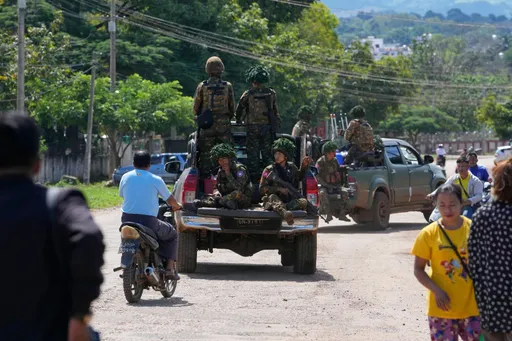At least 21 people, including children, have reported difficulties breathing, a monitor said on Monday. The Syrian regime is suspected to be behind yet another chemical attack on a besieged rebel enclave near Damascus.
United Nations inspectors have accused President Bashar al Assad's regime of being behind multiple deadly poison gas attacks during the country's devastating seven-year war.
"After regime forces fired rockets into the western part of the city of Douma, white smoke spread, causing 21 cases of suffocation," Syrian Observatory for Human Rights said.
Monday's attack targeted the city of Douma in the rebel-held region of Eastern Ghouta, the Observatory said.
An AFP correspondent at a hospital in the city saw people carrying babies wrapped in blankets, breathing through oxygen masks, some of them screaming.
Young girls and men sat on hospital beds, tears in their eyes, unable to stop coughing.
A doctor at the hospital who gave his first name as Bassil said patients were suffering "respiratory irritation, breathing difficulties, coughing and reddening of the eyes."
"We noticed that they smelled like bleach, or chlorine, and we stripped them of their clothes," he said.
At least six children and six women were among those affected, the Observatory said
"Residents and medical sources talk of chlorine gas," Observatory head Rami Abdel Rahman said, adding that his group – which relies on a network of sources inside Syria – could not confirm those reports.
History of chemical attacks
On January 13, a similar attack targeted the outskirts of Douma and the Observatory reported seven cases of suffocation.
Days later, Human Rights Watch head Kenneth Roth accused the Syrian regime of using chlorine gas during the siege of Eastern Ghouta.
Besieged since 2013 by regime forces, the Syrian opposition stronghold's 400,000 inhabitants are already experiencing a crushing humanitarian crisis and severe shortages of food and medicine.
The Organisation for the Prohibition of Chemical Weapons and the United Nations blamed the Syrian air force for an April 2017 sarin gas attack on the opposition-held village of Khan Shaykhun which left scores dead.
The attack triggered an unprecedented American missile strike on the airbase believed to be used by Syrian forces to carry out the attack.
The regime is also accused of using chlorine gas in three areas of northern Syria in 2014 and 2015.
UN Secretary-General Antonio Guterres has called for efforts to punish officials responsible for chemical attacks in Syria.
Syrian state TV said on Monday that rebel mortar fire had killed nine people in two neighbourhoods of Damascus.
Syria's nearly seven-year war, which began as the regime crushed anti-government protests, has claimed over 340,000 lives, forced millions to flee their homes and left the country in ruins.























